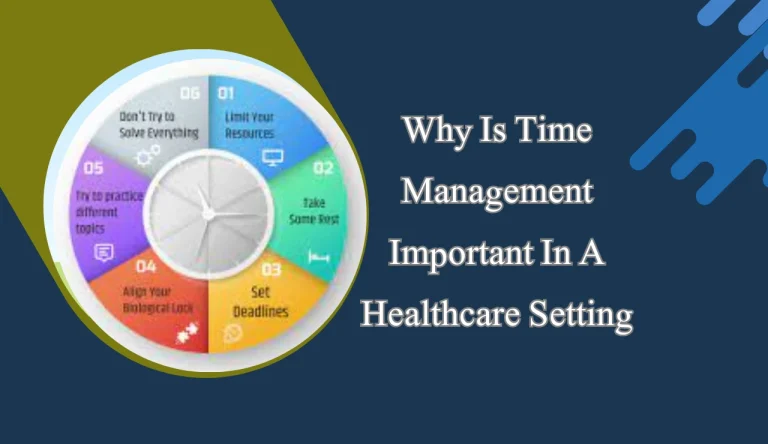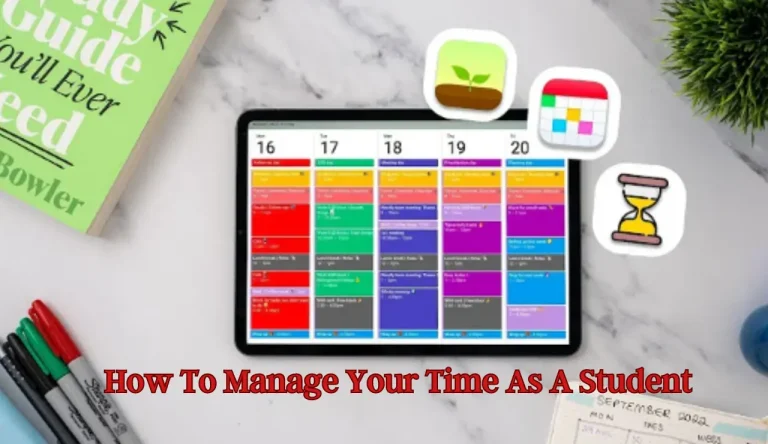How To Improve Time Management
Do you ever feel like there just aren’t enough hours in the day? Like time is slipping through your fingers, leaving you overwhelmed and stressed? You’re not alone. In today’s fast-paced world, effective time management skills are essential for success.
The answer f this common question “How To Improve Time Management?” is that improving your time management skills is like becoming a master juggler. It’s about finding the right balance between work and personal life, setting realistic goals, and staying focused on what truly matters.
Imagine you’re a juggler trying to keep multiple balls in the air. Each ball represents a task or responsibility, and your goal is to keep them all from falling. But what happens when one ball starts to wobble? If you don’t react quickly, it can lead to a chaotic mess.
It requires assessing your current habits, prioritizing tasks, creating schedules, minimizing distractions, delegating when possible, taking breaks for self-care, and continuously evaluating and adjusting your strategies.
In this article, we will guide you through practical steps to enhance your time management abilities so that you can take control of your days and achieve more with less stress. Get ready to juggle like a pro!
Key Takeaways
- Assess current time management for students skills and evaluate productivity tools
- Prioritize tasks and set realistic goals
- Minimize distractions and avoid multitasking
- Incorporate self-care routines into daily routine
Assess Your Current Time Management Skills
Take a moment to honestly evaluate your current time management skills and watch as feelings of overwhelm and frustration start to fade away.
To improve your time management, it’s crucial to assess where you currently stand. Begin by evaluating productivity tools that may help you stay organized and prioritize tasks effectively. Look for apps or software that offer features like task tracking, reminders, and calendar integration. These tools can streamline your workflow and ensure that no important tasks slip through the cracks.
Additionally, take the time to identify time wasters in your daily routine. Are there any activities or habits that consume valuable minutes without adding value? Whether it’s excessive social media scrolling or frequent interruptions, recognizing these time thieves will allow you to make better choices and allocate your time more wisely.
Prioritize Your Tasks and Set Realistic Goals
Make sure you prioritize your tasks and set realistic goals in order to effectively manage your time.

Start by identifying the most important tasks that need to be completed and focus on those first. Set achievable targets for yourself, breaking down larger tasks into smaller, more manageable steps. This will help you stay motivated and make progress towards your goals.
Additionally, eliminate time wasting activities that do not contribute to your overall productivity. This could include excessive social media use, unnecessary meetings or conversations, or spending too much time on non-essential tasks.
By prioritizing your tasks and setting realistic goals, you can optimize your time management skills and increase your overall efficiency.
Create a Daily or Weekly Schedule
Crafting a daily or weekly schedule is like creating a roadmap for your productivity journey, guiding you towards achieving your desired goals and maximizing your potential.
One effective technique to incorporate into your schedule is time blocking. This involves allocating specific blocks of time for different tasks or activities throughout the day. By assigning dedicated time slots, you can focus on one task at a time, minimizing distractions and increasing efficiency.
Another helpful strategy is conducting a time audit. This involves tracking how you spend your time for a week or so to identify any patterns or areas where you may be wasting precious minutes. Analyzing this data will allow you to make informed decisions about how to better allocate your time in the future, ensuring that each minute is utilized effectively towards reaching your goals.
Minimize Distractions and Avoid Multitasking
To truly excel and achieve your goals, you must resist the temptation to constantly multitask and instead focus on minimizing distractions that hinder your progress. Avoiding procrastination is essential in managing your time effectively.
Set specific boundaries for yourself and stick to them rigorously. Here are some practical ways to minimize distractions and avoid multitasking:
- Create a designated workspace: Having a dedicated area solely for work helps eliminate external interruptions.
- Turn off notifications: Disable unnecessary alerts on your phone or computer to stay focused on the task at hand.
- Prioritize tasks: Break down your workload into smaller, manageable chunks and tackle them one by one.
- Practice time blocking: Allocate specific time slots for different activities, ensuring you give each task undivided attention.
By implementing these strategies, you will increase productivity, reduce stress levels, and ultimately improve your overall time management skills.
Delegate and Outsource Tasks When Possible
Delegate and outsource tasks when possible, as it allows you to free up your mental bandwidth and focus on the core aspects of your work, similar to how a conductor delegates different sections to musicians in an orchestra, resulting in a harmonious performance.
Outsourcing benefits can include cost savings, increased efficiency, and access to specialized expertise. When outsourcing, consider tasks like data entry, social media management, or customer support that can be handled by external professionals. On the other hand, delegation techniques involve assigning tasks to individuals within your team who have the necessary skills and abilities.
It is important to clearly communicate expectations and provide any required training or resources. Delegating not only reduces your workload but also empowers others by giving them opportunities for growth and development. Remember that effective delegation requires trust, communication, and regular check-ins to ensure progress is being made.
| Outsourcing Benefits | Delegation Techniques |
|---|---|
| Cost savings | Clear communication |
| Increased efficiency | Assigning appropriate tasks |
| Access to specialized expertise | Trusting team members |
Take Regular Breaks and Practice Self-Care
Make sure you prioritize your well-being by taking regular breaks and practicing self-care, as this will not only recharge your energy but also enhance your overall productivity and creativity.
Here are three effective break strategies to help you optimize your time management:
- Short breaks: Take brief 5-10 minute breaks every hour or so to stretch, walk around, or do a quick mindfulness exercise. These short breaks can help refresh your mind and prevent burnout.
- Longer breaks: Schedule longer breaks of 15-30 minutes every few hours to engage in activities that relax and rejuvenate you. This could include going for a walk outside, listening to music, reading a book, or practicing meditation.
- Self-care routines: Incorporate self-care activities into your daily routine to maintain balance and reduce stress levels. This could involve exercising regularly, getting enough sleep, eating nutritious meals, practicing relaxation techniques like deep breathing or yoga.
Remember that taking care of yourself is essential for optimal time management. By incorporating these self-care benefits and effective break strategies into your daily routine, you can improve your overall well-being while maximizing productivity in the long run.
Continuously Evaluate and Adjust Your Time Management Strategies

As you navigate through your day, don’t forget to regularly assess and adapt your tactics for managing your precious time, ensuring that you stay in control of the ticking clock.
Time management is not a one-size-fits-all approach; it requires continuous evaluation and adjustment to suit your changing needs and priorities.
Take some time each day or week to reflect on how well your current strategies are working for you. Are you accomplishing your goals? Are there any areas where you are struggling or wasting valuable time?
By evaluating your progress, you can identify what’s home working and what needs improvement. Once you have assessed the situation, be willing to adapt your strategies accordingly. This might involve rearranging priorities, delegating tasks, or implementing new tools or techniques.
Remember, effective time management is an ongoing process that requires flexibility and the willingness to make changes as needed.
Frequently Asked Questions
Conclusion
In conclusion, improving your time management skills is essential for leading a more organized and productive life.
By assessing your current skills, prioritizing tasks, creating a schedule, and minimizing distractions, you can make the most out of your time.
Delegating tasks when possible and taking regular breaks are also important for maintaining efficiency.
Remember to continuously evaluate and adjust your strategies to ensure long-term success.
So why wait? Start implementing these tips today and watch as you achieve more in less time!






